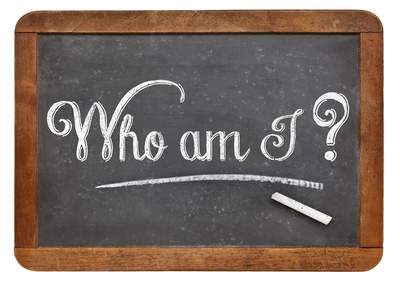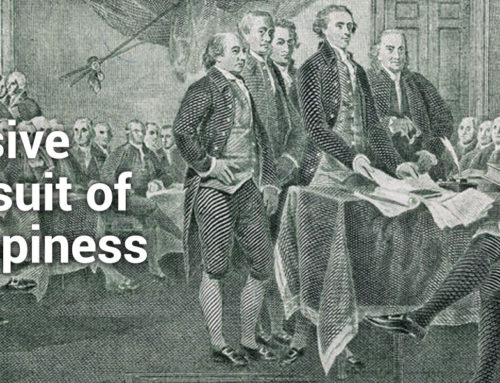Download the entire article (.pdf file) by clicking the below icon:
[icon_list icon=”acrobat” size=”large” link=”/wp-content/uploads/2014/05/STILE-Point-13-The-Importance-of-Self-Awareness-v.final_.pdf” target=”blank”]
[clear]
In STILE Point #11, we discussed the importance of meeting the leadership challenge by first answering the question, “Will I lead?” dealing with the attributes of motivation and talent before answering the question, “Can I lead?” which has more to do with your acquired skills and experience. In this STILE Point we now turn to the essential role that self-awareness plays in underpinning intrinsic motivation, building a healthy self-confidence, and increasing self-esteem. I will only scratch the surface of this extremely important, complex and underappreciated topic, but will quote references for further reading.
While there has never been a strong correlation between personality traits and leadership success, I believe that a universal attribute of successful leaders is a healthy degree of self-confidence and genuine self-esteem. By healthy self-confidence I mean a leader who knows what he knows and knows what he doesn’t know and is not afraid to make prudent decisions based on his current level of awareness. This is opposed to an arrogant leader whose limited awareness permits his confidence level to exceed his abilities and is unable to admit that there are others who know more than he does. This is commonly a result of early successes that go to his head.
By genuine self-esteem I mean a sense of comfort in ones own skin and motivated by one’s own internal values rather than extrinsic rewards and the admiration of others. Bill George in his book, True North, describes this person as an authentic leader. True leaders regardless of their personalities exude self-confidence and self-esteem that make others trust them and want to follow them in their endeavors. Steven Covey describes this well in his book, The Speed of Trust.
Why is self-awareness so important? The higher ones self-awareness, the better decisions one makes in life. The cumulative positive effects of good decisions build self-confidence. The higher ones self-awareness, the easier it is to gain favorable reactions from people. Gaining favorable reactions from people helps builds ones self-esteem.
What is self-awareness?
Social psychologists define self-awareness as the degree of clarity with which we perceive, understand and evaluate, both consciously and non-consciously everything that affects our lives. While the definition is accurate it took me years to appreciate the depth of its meaning. Throughout history, sages have expounded the importance of increasing self-awareness through self-discovery and lifelong learning. Quotes such as “know thyself”, to “thine own self be true”, and the “unexamined life is not worth living” are familiar to all of us.
Unfortunately, cognitive knowledge doesn’t translate well to experiential knowledge. It is extremely difficult to see ourselves as others see us and this is essential in order to increase our self-awareness. It is said that an hour spent in dialog with a wise man is worth thousands of hours reading books.
I like to think of self-awareness in three parts: the intellectual and mental “database” that we have in our head, the emotional and spiritual “database” that we carry in our hearts, and the filters we use to selectively screen and store information in these two databases. All of us have very thick filters conditioned by our heredity, upbringing, intuitional insights, and total life experience that limit our self-awareness of reality. This limited awareness at times results in faulty decisions and inappropriate behavior. Many of us trained in science and engineering tend to be data rich in our intellectual and mental folders and data poor in our emotional and spiritual folders. As a result we tend to make most decisions based primarily on “logic” with little regard to intuition and rarely consider the effect of our behavior on others. There is an emerging school of thought that characterizes intuition as the intelligence of the heart.
Why is self-awareness so important?
Bill George reports that seventy-five members of the Stanford Graduate School of Business Advisory Council nearly unanimously chose self-awareness as the most important capability for leaders to develop. In his book, Emotional Intelligence, Daniel Coleman lists self-awareness as the first element in describing the leader’s role. Successful leaders do two things exceptionally well. They make good decisions most of the time and build strong and lasting relationships. Increased self-awareness almost always leads to better decisions that in turn reinforce one’s self-confidence. Increased self-confidence leads to building a healthy self-esteem that leads to stronger personal relationships. Covey describes the importance of becoming independent before seeking interdependence in his book, The Seven Habits of Highly Effective People.
The lack of awareness of the factors that influence our behavior oftentimes leads to unfavorable reactions from people. It is also the major cause of faulty decision-making. Being aware of and learning from the consequences of your decisions and actions lead to wisdom.
I was first exposed to the importance of the concept of self-awareness in my 30s while taking a course in Building Self Esteem from the Barksdale Foundation. It was then that I discovered the uncomfortable truth that I was succeeding in spite of my behavior, not because of it. My actions were designed to prove to the world how smart I was and my decisions at the time were based solely on completing the task at hand and advancing my career with little regard for how my behavior was affecting others around me. By opening up to people who knew me well, I became painfully aware that I was branded as a “know-it-all” and a person that couldn’t be trusted. I was fortunate to latch on to a mentor whom I worked with for the next 20 years who steered me on a path of lifelong learning and discovery. I am still on that path knowing that the journey lasts forever.
Increasing your self-awareness through exploration and lifelong learning
Our awareness is made up of four key factors:
- Our intellectual acumen: the ability to analyze, correlate and evaluate all experiences and to accurately determine the cost and benefit of any action we may take.
- Our intuitional insights driven primarily from subconscious drives and urges emanating from the heart.
- Our total life conditioning, both conscious and non-conscious, resulting in our knowledge base, values, ideals, and belief system.
- Our sense of personal worth that drives our moods, attitudes, emotional reactions, prejudices, habits, desires, fears, aspirations and goals as a result of our conditioning.
The hardest person you will ever have to lead is yourself. You must take personal responsibility for your own development starting with increasing your self-awareness. Save your money and avoid all advice from instant success books and seminars. Expect the development process to last a lifetime and enjoy the exploration. Some recommendations I can make based on personal experience are the following:
- Become more introspective – find out what really motivates you, what drives your behavior, why do you do the things you do. In time you will discover your hidden strengths and become aware of your not so obvious weaknesses.
- Find a good mentor – as I said previously, an hour spent with a wise man is worth a thousand hours reading books. One of the hardest things to do is to see ourselves as others see us. A good mentor should make you feel uncomfortable at times.
- Observe and model leadership behavior – watch what outstanding leaders do in a variety of situations and read autobiographies.
- Be willing to dent your ego – listen to feedback from others even if you don’t want to hear it. When you experience unfavorable reaction from people, instead of rationalizing, ask yourself “what was it that I said or did that triggered that reaction”.
- Seek continuous improvement in your self-awareness – Constantly evaluate your decisions and actions by conducting a “lessons learned” exercise. Decide what went right and what went wrong and objectively examine the reasons why. Then commit to improving that decision or action the next time. This is the process of continuous improvement and lifelong learning.
On my wall in my office is a plaque with my favorite reminder, “better than yesterday, not as good as tomorrow”. Once you start on this lifelong journey of self-discovery, I assure you, you will find it personally rewarding.
[hr]
Dr. Tony Graffeo is the president of Graffeo & Associates, a global consulting company founded in 2007 that provides technology executives and R&D managers consulting and training on Strategic Planning, Performance Management, and Leadership Development.
Dr. Graffeo has over 35 years experience in R&D management, serving as Vice President of R&D for two internationally recognized Science, Technology, and Innovation organizations; Battelle Memorial Institute and Arthur D. Little. He was also one of the founders and Executive Vice President of Biodevelopment Laboratories, a contract R&D Company serving the pharmaceutical and biotechnology industries.




Leave A Comment